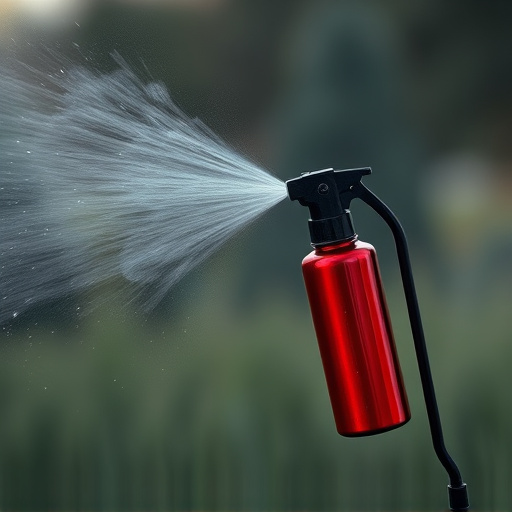Pepper spray laws vary by US state, regulating possession, use, and sale for self-defense. Understanding these state-specific rules is crucial for responsible deployment, ensuring citizens can protect themselves while adhering to legal requirements.
In today’s world, knowing how to protect yourself against inflammatory agents like pepper spray is crucial. This comprehensive guide delves into the intricate details of pepper spray, from understanding its chemical composition and effects to navigating the complex landscape of state-specific laws. By exploring ‘Pepper Spray Laws by State’, we equip folks with essential knowledge for self-defense, fostering safety in bustling communities. Get ready to discover effective strategies and best practices for personal protection.
- Understanding Pepper Spray: Chemicals & Effects
- Pepper Spray Laws: A Comprehensive Overview by State
- Personal Protection: Effective Strategies & Best Practices
Understanding Pepper Spray: Chemicals & Effects
Pepper spray, an inflammatory agent personal protection spray, is designed to cause temporary disorientation and immobilization in the target. It works by irritating the eyes and respiratory system through a combination of capsaicin, the active ingredient found in chili peppers, and other chemicals. The effects typically include teary eyes, coughing, difficulty breathing, and pain in the targeted areas. Understanding these mechanisms is crucial when considering its use for personal safety, especially under Pepper Spray Laws by State.
These laws vary significantly across different states, reflecting differing societal norms and priorities regarding self-defense. Knowing your state’s regulations regarding pepper spray ownership, carrying, and usage is essential for responsible and legal deployment. This knowledge empowers individuals to protect themselves effectively while adhering to the legal framework surrounding this powerful tool.
Pepper Spray Laws: A Comprehensive Overview by State
The legal landscape surrounding pepper spray, or oleoresin capsicum (OC) spray, varies significantly across the United States. Each state has its own set of regulations governing the possession, use, and sale of this potent inflammatory agent for personal protection. Understanding these Pepper Spray Laws by State is crucial for citizens seeking to arm themselves with this self-defense tool.
State laws cover a range of issues, including who can legally possess pepper spray, restrictions on its use, and requirements for training or permits. Some states allow individuals 18 years or older to carry OC spray without a permit, while others restrict its use to law enforcement or require citizens to obtain a license or permit. Moreover, certain jurisdictions have specific rules about the type and amount of pepper spray allowed, as well as restrictions on where it can be carried (e.g., in vehicles or public spaces). This comprehensive overview aims to demystify these laws, empowering individuals to make informed decisions regarding their personal safety while adhering to local regulations.
Personal Protection: Effective Strategies & Best Practices
Personal protection through the use of pepper spray is a crucial consideration, especially in light of recent trends and changing Pepper Spray Laws by State. When used responsibly, pepper spray can serve as an effective deterrent against potential physical threats. However, it’s important to understand local regulations and adhere to best practices for optimal safety.
Knowing what types of pepper spray are legal in your state is just the first step. Proper handling and application techniques are equally vital. Training sessions or workshops focused on self-defense tactics can equip individuals with valuable skills. Additionally, keeping pepper spray readily accessible yet secured to prevent unauthorized use is essential. Regular maintenance checks ensure it remains effective when needed most.
When it comes to personal protection, understanding and utilizing pepper spray effectively is crucial. By familiarizing yourself with the chemicals and their effects, as well as navigating the varying Pepper Spray Laws by State, you can ensure your safety and make informed decisions. Following best practices for deployment and staying up-to-date with local regulations empowers individuals to protect themselves in diverse situations. Remember, knowledge is a powerful tool, enabling you to stay one step ahead in today’s ever-changing world.
